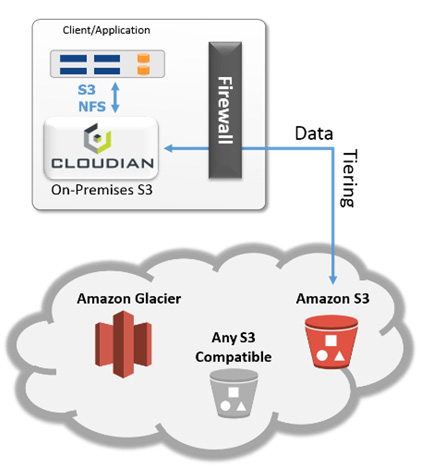When people use public data storage, they usually don't know where the provider's "bit barns" are located. Not knowing may be OK for storing photos of your cat, but your perspective may change a bit when it concerns storing your business data. Why? Well, business data generally has a higher economic value than photos of your cat, and depending on the type of data, there may be a plethora of security, governance and compliance requirements that need to be met when storing that data.
Not to single-out anyone, but a survey by Perspecsys of 125 attendees at the recent RSA security conference, revealed that fifty-seven percent of the respondents "don't have a complete picture of where their sensitive data is stored." Forty-eight percent said they "don't have a lot of faith in their cloud providers to protect their data." Only sixteen percent actually knew where all of their "sensitive structured data" is stored. And just seven percent knew the location of all of their "sensitive unstructured data."
The latter two categories are interesting to note. Structured data is usually contained in database systems where there are presumed to be adequate access controls. Structured data typically represents less than twenty percent of the data stored in any organization. Unstructured data includes emails, media files, photos, presentations, office-type documents, log files and other machine-generated data. Unstructured data represents the bulk of data in any organization and it is growing 10-to-50 times faster than structured data.
Poor understanding of the risks, lack of planning and a certain amount of ignorance regarding the practices of public cloud storage providers could create a really bad scenario for some organizations. So, how do you avoid the downside while being able to utilize the benefits of public cloud data storage? The answer is to cloud local, except when you decide it is appropriate to use public cloud storage.
Cloud local sounds like an oxymoron. After all, the global public storage providers can offer very low-cost storage by leveraging their tremendous economics of scale. So how can SMB or enterprise organizations build their own private cloud storage in an economically efficient manner? The answer is to start with appropriately designed storage clusters from MonadCloud.
Organizations who already use public cloud storage may not realize they can operate their own private cloud storage that can scale from tens of terabytes to hundreds of petabytes on a pay-as-you-grow basis. The software to build private storage clouds has been available for a few years from vendors who specialize in "object-based storage," which is a type of cloud storage offered by Amazon Web Services (AWS). Object-based storage has many advantages. It can easily scale-out as more storage is needed. It is simpler to manage than file and block storage like NAS and SAN. And it is cost efficient, which means you don't have to buy more than you need to get started.
So, does this mean you must choose between public or private cloud storage? No, because MonadCloud clusters are true "hybrid" storage clouds. A "hybrid" storage cluster allows you to keep your data local until you decide to tier some of it to a public cloud storage provider. Your local data can also be encrypted and compressed before it is tiered, which provides greater security and economy when storing data in a public cloud.
MonadCloud storage clusters, powered by Cloudian, are true "hybrid" storage clouds. Cloudian has placed a bet that Amazon Web Services (AWS) will remain the dominant public cloud storage provider. And with over 2 trillion objects stored, the AWS Simple Storage Service (S3) is the de facto standard for storing data in the public cloud.
When you "cloud local" with your MonadCloud storage cluster, you reap the benefits of operating your own low-cost, private storage cloud that is fully compatible with AWS S3 and Glacier. This gives you the ability to choose from among the hundreds of applications that support AWS S3 and Glacier. You also have the ability to utilize S3, Glacier and other S3-compatible storage as low-cost remote storage tiers for data that can be stored in the public cloud. Local control of your data, plus the "hybrid" option to use public cloud storage can be yours with MonadCloud clusters powered by Cloudian.

